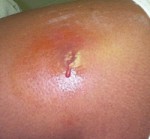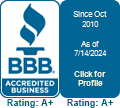How easily is MRSA transmissible and how do most people catch it?
Is MRSA Contagious? There are plenty of scientific studies showing how contagious MRSA can be. MRSA can be spread through the air and the bacteria can live on surfaces for weeks or even longer. One of the best ways to gauge how is MRSA spreadable comes from real people’s stories about how they caught these infections.
From the thousands of people I’ve heard from over the last 3 years, you can get a clear picture on how is MRSA transmittable and who is most at risk:
- Most people catch Staph or MRSA in the hospital, especially after an operation. This is most common in older people.
- A growing number of people are getting infected it the community, especially teenagers and children.
- MRSA is striking more otherwise healthy people (especially community MRSA, also known as CA-MRSA).
- People often get MRSA from their spouse, child or another family member. Sometimes family pets can be a factor as well.
Anyone can be affected

MRSA Cutaneous Abscess. Photo Credit: CDC/ Bruno Coignard, M.D.; Jeff Hageman, M.H.S.
It just goes to show you that while MRSA is most common in health care facilities, it’s becoming a bigger problem in the community. And anyone can catch it. Babies, elderly, and people with weak immune system may be more at risk, but MRSA is striking more teenagers, young adults and people who are otherwise quite healthy.
My sister-in-law Karen recently got a MRSA infection from just visiting someone in the hospital. Luckily, her MRSA treatments worked quickly and nobody else in her family caught her infection. Just last year, my husband Les was ice climbing with a group of young climbers in Ouray, Colorado. One of them was a woman who got infected with MRSA on her finger. Even though she skied, climbed ice and was very fit, she still caught MRSA, and without setting foot in a hospital.
Everyone can reduce their risk
While MRSA is contagious and it can infect just about anyone, there are many effective ways to protect yourself and reduce the risk of catching MRSA. Consistent hand washing and personal hygiene are important, however, these are not enough by themselves (and be aware of antibacterial soap dangers).
People who are most successful at MRSA infection control protect themselves on multiple fronts, including controlling airborne MRSA, having natural antibiotics on hand, and boosting their immune systems.
While anyone can get MRSA, there’s no need to live in fear of it. Hand washing and hygiene go a long way, not just for MRSA, but for colds, flu and other infections too. Keeping your immune system strong makes you much less prone to many infections. And there are effective natural products to help your body ward off these potentially dangerous infections and keep your home clean.
To your health,
Michelle Moore
Microbiologist and Natural Health Expert
Author of the Natural MRSA Treatment Guidebook MRSA Secrets Revealed





